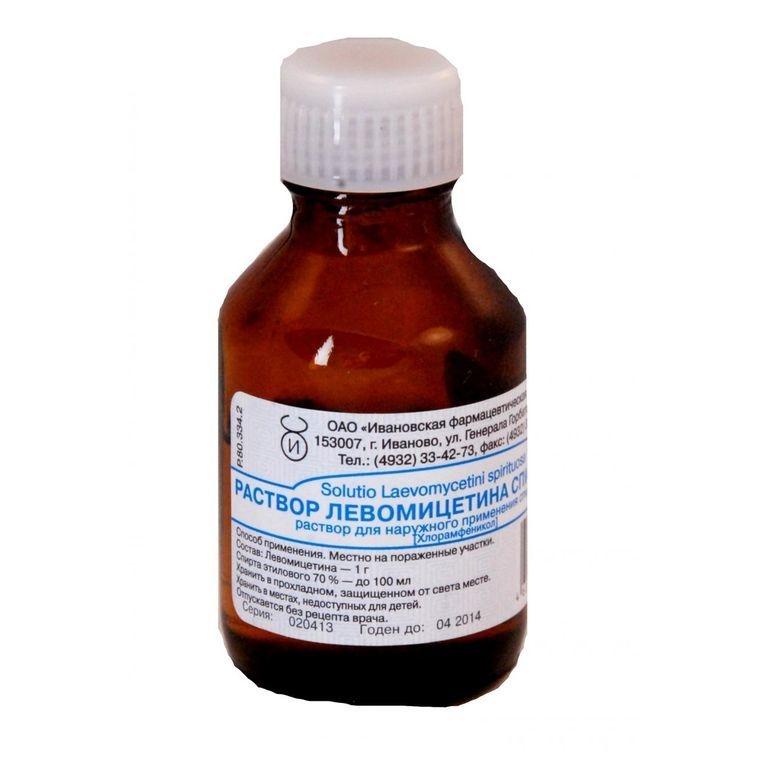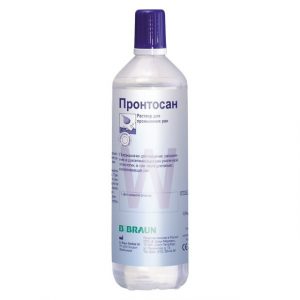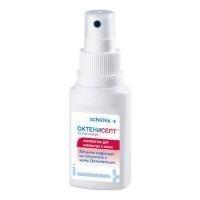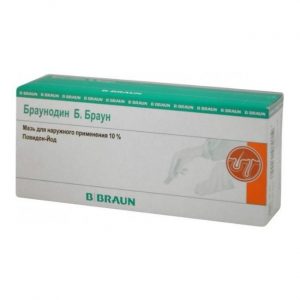Description
Release form
Solution for external use. Transparent, colorless or colorless with a slightly yellowish tint liquid with a characteristic odor of alcohol.
Packing
Levomycetin, bottle 1%, 25 ml. Bottle of orange glass with a screw neck, corked with a cork and a screw cap. The bottle, along with instructions for use, is placed in a pack of cardboard.
Pharmacological action
The active substance of the drug is chloramphenicol, a broad-spectrum antibiotic with high antibacterial activity against the causative agent of wound infections and various forms of purulent-inflammatory processes. Chloramphenicol is a bacteriostatic antibiotic, disrupts the process of protein synthesis in a microbial cell (having good lipophilicity, penetrates the bacterial cell membrane and binds back to the 50S subunit of bacterial ribosomes, in which the movement of amino acids to the growing peptide chains is delayed, which leads to disruption of protein synthesis). Active against most strains of gram-positive and gram-negative microorganisms resistant to penicillin, tetracyclines, sulfonamides.
Promotes the cleansing and healing of burns, purulent wounds and trophic ulcers, accelerates epithelization. It does not affect acid-resistant bacteria (including Mycobacterium tuberculosis), anaerobes, methicillin-resistant strains of staphylococci, Acinetobacter spp., Enterobacter spp., Serratia marcescens, indole-positive strains of Proteus spp., Pseudomonas viruses, aerugosa.
Indications
Bacterial infections of the skin caused by susceptible microorganisms, including infected burns (superficial and limited deep), pressure sores, trophic ulcers, boils.
Contraindications
Individual intolerance, oppression of bone marrow hematopoiesis, acute intermittent porphyria, glucose-6-phosphate dehydrogenase deficiency, liver, kidney failure, skin diseases (psoriasis, eczema, fungal infections during pregnancy, 4 weeks of gestation, pregnancy, pregnancy )
Caution: early childhood in patients previously treated with cytostatic drugs or radiation therapy.
Special instructions
During treatment, systematic monitoring of the peripheral blood picture is necessary.
When applied to large surfaces with the simultaneous use of ethanol, disulfiram-like reactions may develop (hyperemia of the skin, tachycardia, nausea, vomiting, reflex cough, convulsions).
Composition
Active ingredient (1% solution): Chloramphenicol 1 g
Excipient: Ethanol (ethanol) 70% to 100 ml
Dosage and administration
Externally, the affected areas are treated with a cotton swab dipped in solution, 2-3 times a day. The duration of the course of treatment – according to indications, depending on the nature and localization of the affected area.
Side effects
Allergic reactions: skin rash, angioedema.
From the hemopoietic organs: reticulocytopenia, leukopenia, granulocytopenia, thrombocytopenia, erythropenia, aplastic anemia, agranulocytosis.
Drug interaction
When used simultaneously with erythromycin, clindamycin, lincomycin, mutual weakening is noted due to the fact that chloramphenicol can displace these drugs from the bound state or prevent their binding to the 50S subunit of bacterial ribosomes. Reduces the antibacterial effect of penicillins and cephalosporins.
Medications that inhibit bone marrow hematopoiesis increase the risk of myelosuppression.
Overdose
There have been no cases of overdose.
Storage conditions
In a dark place at a temperature of 15 to 25 ° C. Keep out of the reach and sight of children.
Expiration
1 year. Do not use after the expiry date.
Terms leave through pharmacies
without prescription
Dosage form
solution for outdoor use
Appointment
Children older than 1 month, the adults on prescription, For children as prescribed by the doctor
Ivanovo farmfab Rika, Russia




